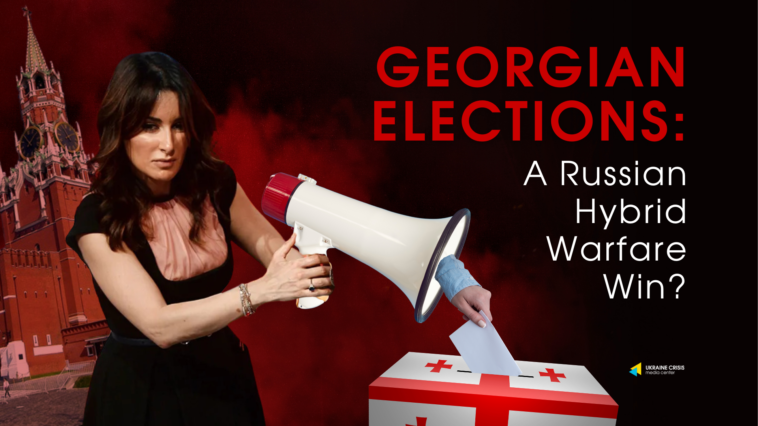Matt Wickham
Georgia’s elections, a Kremlin success and a sharp reality check for the West as the Georgian people slide further under Moscow’s influence.
On October 26th, Georgians headed to the polls in a pivotal election that would shape their national future and the broader geopolitical security landscape in Europe.
The ruling Georgian Dream party—whose recent actions increasingly align with Kremlin interests—was declared the winner with 53.9% of the vote.
This outcome has prompted accusations of foul play from the opposition, while the West struggles to make sense of the situation.
Russian propaganda wasted no time in celebrating, framing the election as a victory and evidence of the West’s diminishing influence.
This win, however, shouldn’t come as a surprise; it’s been long in the making through the Kremlin’s hybrid warfare operations.
Propagandists assert, with a sense of smugness, that the tides have turned in their favour, putting the pro-Western aspirations of many Georgians—and Western support—at serious risk.
Pre-Election Narrative: Us vs. Them
The narrative presented was clear: the opposition party equates to war that would lead to a disaster similar to what Russia brought to Ukraine.
Tina Kandelaki, a Georgian-born and Russian-raised media figure, has become one of the Kremlin’s most prominent voice of a Russian-loving Georgian.
Once a go-to commentator on Georgian politics on shows like 60 Minutes, she is now a staple in Russian media, business, and pro-Kremlin influence. Kandelaki considers Russia her true homeland yet rarely misses an opportunity to weigh in on events in Tbilisi, unable to understand the people’s desire to rid themselves of Russian control.
Despite claiming she rarely comments on Georgian politics, her Telegram account suggests otherwise.
In October alone, she posted seven times on Georgian affairs, each comment echoing Kremlin talking points and denouncing Western “interference” in the country’s future.
In the lead-up to the elections, her message was clear: voting for any party other than the ruling Georgian Dream—a party many view as pro-Russian—would plunge the country into chaos and conflict, curated by the West.
“The only thing it can bring is weapons for war with Russia, and for that, it will have to pay with its own money, blood, and a return to the Middle Ages. Modern Ukraine is a clear example of this”
Kandelaki’s sentiments resonated across Russian-aligned media.
Sergei Mardan, commenting on the government’s LGBTQ+ law, which fundamentally opposes EU values, reinforced the us-versus-them narrative, claiming the West is heading for self-destruction.
“In Georgia, they remember [European values], but the ‘enlightened West’ is moving further in the direction of the total self-liquidation of its own culture.”
A narrative echoed by Yulia Vityazeva…
“They are probably among the few who have learned lessons from the Ukrainian conflict. It was not for nothing that their advertising campaign made so much noise that people in Ukraine fainted and went into hysterics. But look how clearly they showed what is and what can be.”
Here, Vityazeva refers to Georgian Dream’s campaign billboards, which conveyed the threat of war with Russia if the opposition were chosen.
The billboards displayed images of Ukrainian war ruins on one side and Georgia’s recent city project successes on the other, suggesting that voting for the opposition risks disaster, while voting for Georgian Dream promises safety and progress.
This narrative resonates particularly with older Georgians, many of whom still bear the psychological trauma of the 2008 Russian invasion.
However, one must argue that it is possible that Georgian Dream’s stance isn’t explicitly anti-Ukraine or anti-West; it may instead reflect a desire to preserve their position by maintaining a “stable” status quo in a politically uncertain environment.
As for Kandelaki, her influence over Georgians—especially the younger generation she aims to reach in Russia—is minimal, if not nonexistent. Rarely returning to Georgia and when she does it’s with a bodyguard entourage, fearful of her “own people,” her influence is not to be feared.

